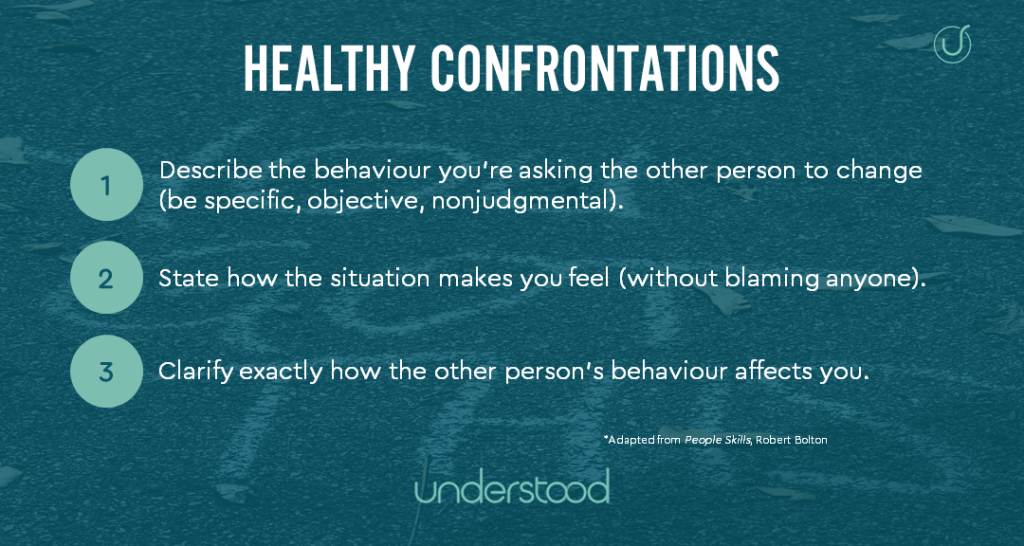
‘Healthy’ confrontations – how assertiveness can help with conflict resolution
By Carolyn Quainton in Behaviour, Communication, Employee engagement
We have now reached the final part of our three-part series on communication strategies. You can read the previous two articles about communication roadblocks and active and reflective listening on our blog. Today, we will explore healthy confrontations and how to practice them. And yes, you read that correctly: ‘healthy’ and ‘confrontations’ do belong together.
Why you should not avoid confrontation
The word confrontation often makes people uncomfortable because many link it to negativity or outright hostility. We tend to assume that confronting someone involves aggression, anger or blame. In reality, confrontation allows us to address challenges in our family, career and personal life in a constructive way.
Sometimes we avoid these conversations because we fear when, where or how to approach them. We worry the other person might reject our views or react with resentment, especially if they already feel emotionally heightened. However, we can have the conversations we keep putting off. We can face challenges directly and resolve communication issues once we overcome that fear.
The key to healthy confrontation lies in avoiding both submissiveness and aggression. Instead, we should adopt an assertive approach.
How assertiveness improves communication
Assertiveness enables people to express their needs, wants and opinions without hurting or offending others. Speaking in a respectful and even tone is vital to being assertive. Having healthy confrontations is exactly that – healthy. You should aim to stay calm and composed while defending your position.
As you build your assertiveness, you may discover that it becomes one of your most effective tools for clear communication. You can start with this simple three-step process:

Remember that not everyone will respond positively to an assertive approach. Some people may become defensive rather than engage constructively. If you find that a confrontation is not progressing well, you can use conflict resolution techniques to de escalate the situation and work towards a more constructive outcome.
Conflict resolution and communication
Even with strong assertiveness skills, conflict can still arise. When this happens, you should aim to limit the damage and guide the conversation towards a resolution.
Conflict resolution requires you to focus on finding a solution that works for everyone involved, rather than simply proving your own point. This might mean compromising in some areas while also helping others to understand your perspective.
The goal is to work together to solve the problem. You should redefine the issue in practical terms and choose the solution that meets everyone’s needs as effectively as possible, even if it does not meet every desire perfectly.
In summary
Conflict can arise even among the best communicators. It can disrupt relationships at best and severely damage them at worst. However, some forms of conflict can actually help to strengthen a relationship. You can develop and refine your communication skills by practising assertiveness and preparing for effective conflict management.
Speak to one of our team about how our Big Five Programme can help transform your team into a more harmonious, productive, and enjoyable workplace.
Talk to us, explore our website, read our blog, and follow us on LinkedIn to learn more and discover ways to grow a more successful business.


